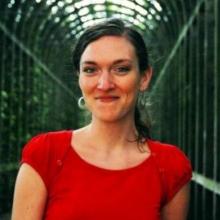Emily Burdett
Associate Professor, University of Nottingham


Associate Professor, University of Nottingham
Emily is Associate Professor at the University of Nottingham. She graduated BS in psychology from Azusa Pacific University and MS in clinical psychology from California State University, Fullerton. She completed a DPhil at Oxford researching the cognitive, cultural, and developmental foundations of children’s understanding of God and humans. Following her DPhil she was a research fellow at the University of St Andrews for three years, examining the developmental origins of culture and innovation.
She is currently investigating the development of belief across 30 different sites globally (developingbelief.com) as well as the developmental origins of creativity. Her research interests include science and religion, child development, the developmental origins of creativity and learning, morality, and social cognition.
She is also involved with a research team who are investigating the growing number of adults and families who identify as SBNR, or Spiritual But Not Religious. She is interested to see how families cultivate spirituality in their families.
Finally, she is also involved in several projects examining how children develop creativity and innovative problem-solving skills. She is examining the environments, mindsets, and resources that encourage exploration and innovation in young children.
Her work has been published most recently in Developmental Psychology, Philosophical Transactions of the Royal Society, and Child Development.
My work uses an interdisciplinary, cross-cultural, and experimental approach to explore questions about how children and adults form concepts, how they learn and who they learn from, and when they innovate and become creative. These questions motivate current projects exploring the origin and transmission of culture, the cultural and cognitive underpinnings of religion and morality, and the motivations for learning and creativity. Specific topics include: what environments help children to be the most innovative, does working together or alone help with problem-solving, what aspects of morality do children find intuitive, who do children learn from, and how do children develop supernatural agent concepts?